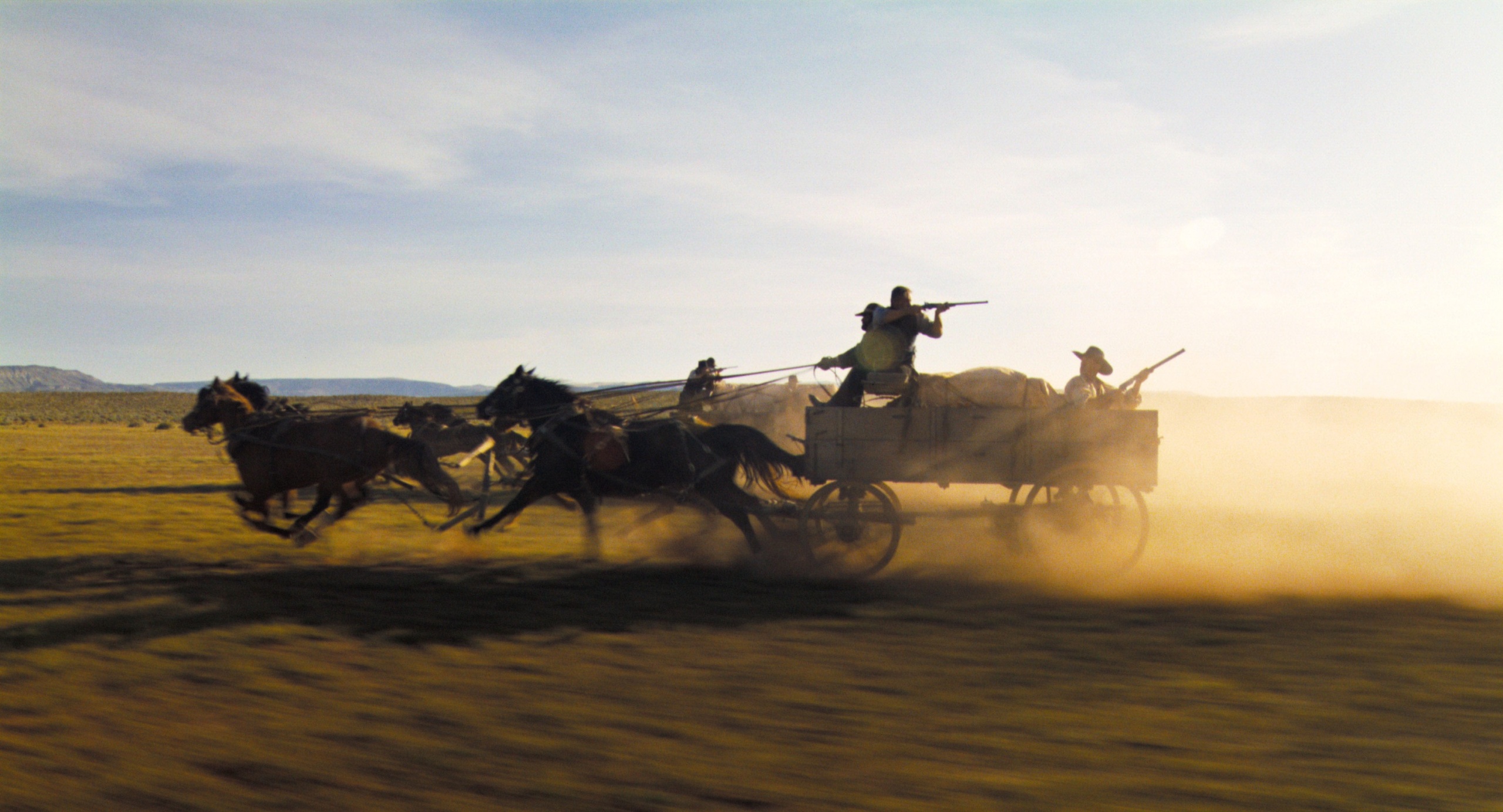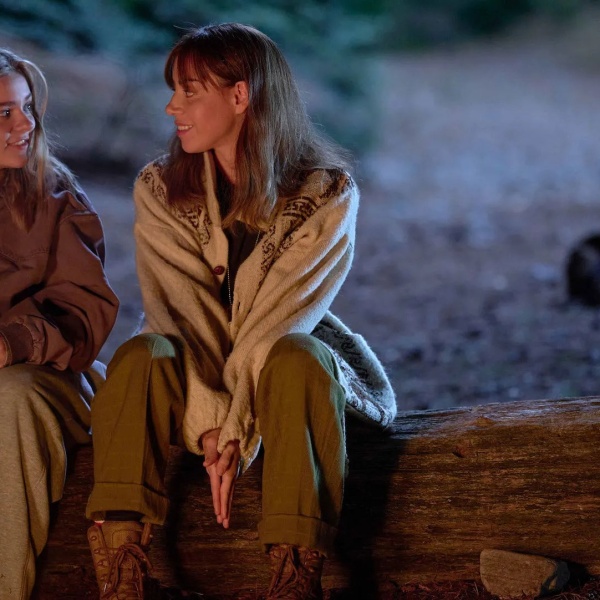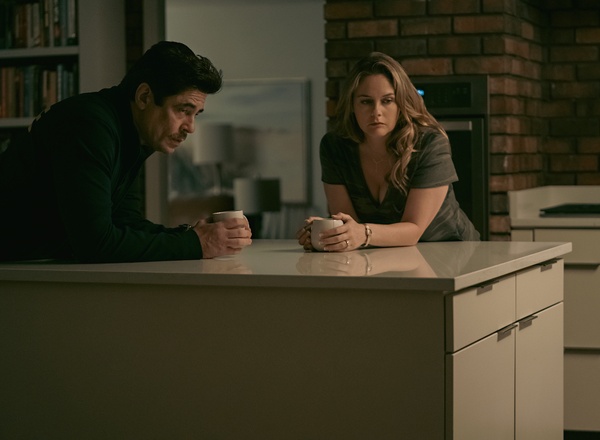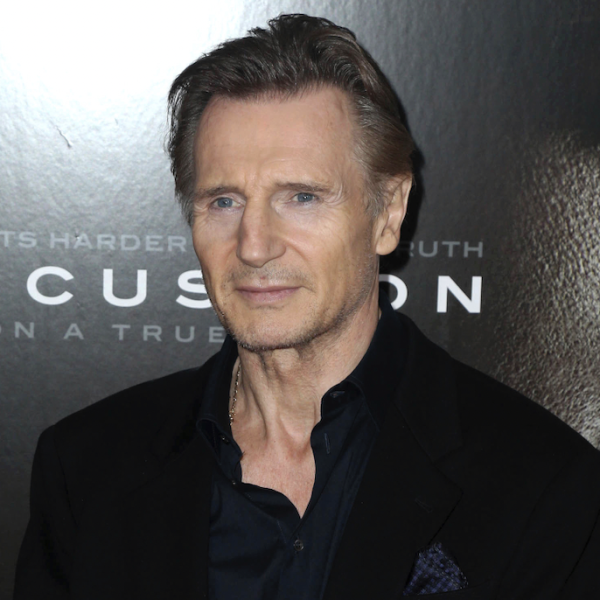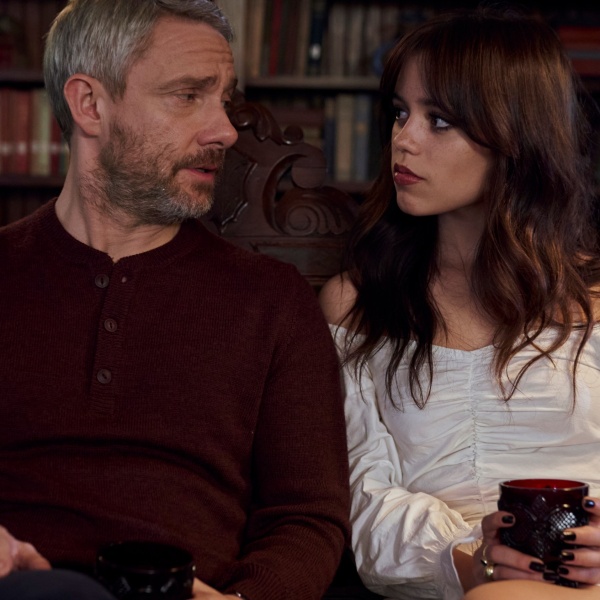Kevin Costner is not a filmmaker who thinks small. His debut feature as director, “Dances With Wolves,” was a sweeping epic of the American frontier that overcame industry skepticism in 1990 to prove that the Western genre still had relevance for contemporary audiences — winning Costner a Best Director Oscar in the process. His next directorial effort, 1997’s “The Postman,” was an even bigger swing for the fences, a post-apocalyptic fable that applied Costner’s interest in Western iconography to science fiction, creating a one-of-a-kind adventure film as bold and idiosyncratic as anything released by a Hollywood studio that year. Even a more modest production like “Open Range,” Costner’s 2003 Western about free range cowboys battling an evil rancher, sought to illuminate aspects of the old West elided by other movies, going deep into the intricate details of its characters’ work and personal lives and reconsidering the role of women in the West via a rich central performance by Annette Bening.
Even by Costner’s standards, however, “Horizon: An American Saga” is an enormous undertaking. A projected four-part series of films that explores the evolution of the American West during the Civil War, it’s a wide-ranging ensemble piece that adopts a broad array of cultural perspectives and gives each of them careful consideration. There are enough ideas and storylines in “Horizon: An American Saga – Chapter 1” to keep most directors busy for their entire careers, and Costner is just getting started; even with a running time of close to three hours, the movie moves at a brisk pace and leaves the viewer hungry to see just how the story will pull its various threads together in subsequent installments. Yet brisk doesn’t mean rushed; one of the pleasures of “Horizon” is the way that Costner luxuriates in the anthropological details of his characters’ lives and allows the audience to do the same.
When the film does erupt into action set pieces — like a stunning raid comprised of elaborately choreographed non-stop carnage — they’re more kinetic, meaningful, and horrifying thanks to the context the director has created around them. “I love my gunfights, but I’m not in a rush to get to them,” Costner told IndieWire’s Filmmaker Toolkit podcast. “I’m in love with the language, and I think it informs [the action]. I’m willing to take my time saying the lines I want against these big spaces.” Even when “Horizon” does zero in on the violence, it often does so from a more personal perspective than one finds in a less handmade Hollywood movie; there are sections of the aforementioned siege, for example, when Costner purposefully omits certain pieces of information in order to plunge the audience into the point of view of a given character.
“I really wanted to stay in that house,” Costner said of a passage in which some settler characters realize they are almost certainly going to die. “I didn’t really cover what was going on outside.” For Costner, limiting the perspective is often a way of digging into the multiple layers of feeling and thought that can be driving one piece of action. “That scene actually has three different emotions, and that’s what I think is missing in the majority of Westerns. It’s not that I’m trying to set the record straight, it’s just that they can be too simple for me.” There’s certainly nothing simple about the script for “Horizon,” which Costner has been working on at varying degrees of intensity for decades (the screenplay for “Part 1” is credited to Costner and Jon Baird). Yet, the years of work on the piece have consolidated and clarified its ideas. Indeed, one of its greatest strengths is the way that it keeps the audience acclimated to both geography and narrative no matter how complicated the story and action become.

Costner says that providing a clear sense of onscreen space is vital to a Western, especially one that is preoccupied with the building of a town (the “Horizon” of the title). In order to give the audience signposts to which they could return, the director went so far as to personally plant trees in areas where he felt they were needed to give variety and definition to the landscape. “I feel there’s a comfort to it when you know where you’re at,” he said. That kind of classical approach to visual storytelling — the deliberate, precise approach of a John Ford or Akira Kurosawa — has become a rarity in Hollywood cinema, but Costner is doing what he can to keep it from disappearing. “I hope people like that part of movies. I don’t know if they do anymore, but that’s not my problem. I do like it, so when I make them, it’s still going to be there.”
That said, whether or not the audience will respond to Costner’s sensibility is, in fact, his problem given that he has invested millions of his own dollars into the “Horizon” saga and has a lot riding on whether or not “Part 1” succeeds and indicates that there’s an appetite for more. The lyricism, poetry, and confidence of “Part 1” is all the more astonishing given that Costner is directing all of these movies while also hustling for investors and making difficult decisions about how many of his own resources to sacrifice for the films. “That component has occupied an enormous amount of my time,” Costner said, acknowledging that there’s been a lot of anxiety about what he could lose should the “Horizon” gamble fail.
“I’m hoping that doesn’t happen, and I don’t think it will,” Costner said. “I don’t think it will for one simple reason, which is that movies live forever. It’s not about the opening weekend. I’m going to own this movie forever.” Costner is determined to give the audience the kind of memorable experience that made him want to make movies in the first place when he was a fan. “It’s about that moment I had in the theater when I was little that was all about, ‘Can this change me? I know it’s designed to entertain, but can I grab something out of this that I want to take into my life, maybe a moment that I’ll never forget?’ And I think ‘Horizon’ is full of them.”
